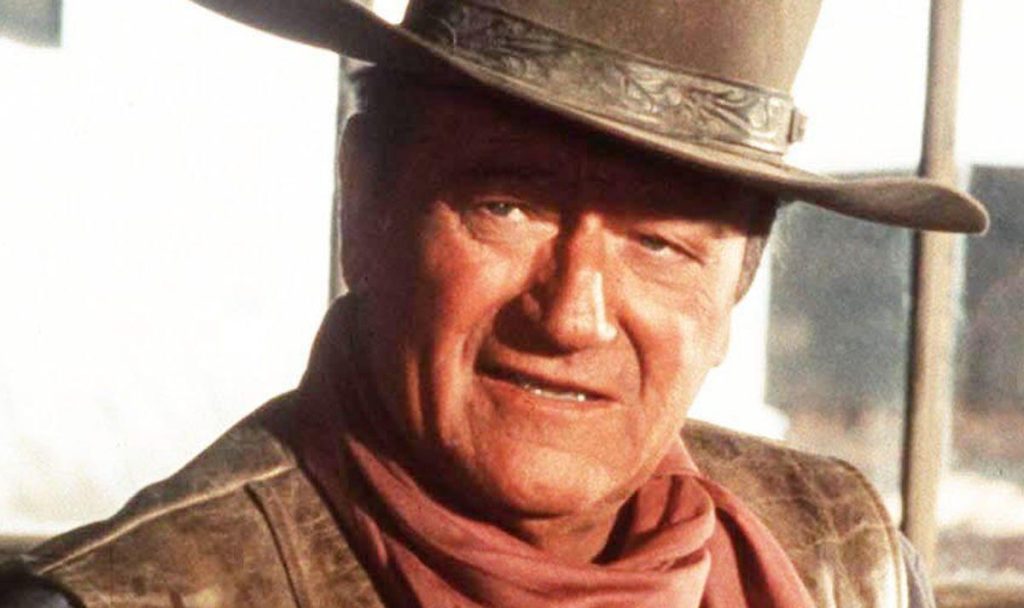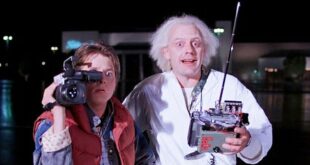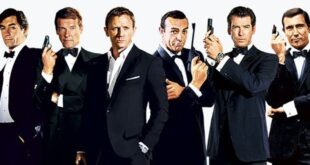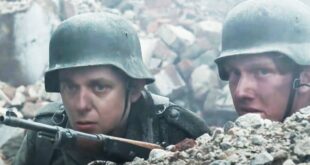
John Wayne was as fierce and formidable off-screen as he was on, virulently and vocally leading the Hollywood charge against suspected communists and anyone he felt tarnished the sacred spirit of ‘All-American’ values. He famously turned down films from Steven Spielberg to Clint Eastwood because he did not agree with their tone or message. He absolutely hated two movies by one of his fellow titans of the Silver Screen. The Duke’s fury over the classic western High Noon is well known but he was even more outraged by a subsequent war film.
Gary Cooper was one of the rare stars who made a spectacular transition from the silent movies into ‘talkies’ and ranked in the top ten of Hollywood’s biggest stars for 23 consecutive years. He would also end up lining up against Wayne and his supporters in the raging battle that divided the entire industry and ended careers.
Of course, Hollywood is an industry and so in 1953 Wayne found himself on stage accepting the Best Actor Oscar on behalf of Cooper (who was filming abroad at the time) for a film that everyone in the auditorium and the industry knew he absolutely detested.
Wayne had famously turned the lead role of Will Kane in High Noon down. He believed the story of an honourable former marshal forced to stand alone against vicious outlaws after the cowardly townsfolk abandon him was a thinly veiled attack on Hollywood for failing to stand behind the many who were being accused of communist ties and blacklisted.
Wayne was a vocal supporter of blacklists and took pleasure and some credit later for High Noon writer (and former communist party member) Carl Foreman being charged and immigrating to Britain in 1952 after making the film.
The Duke called High Noon “the most un-American thing I’ve ever seen in my whole life,” but showed grace by agreeing to accept Cooper’s Oscar for him with a pointed but charming speech.
In 1959’s They Came to Cordura, Cooper played an army Major disgraced and charged with cowardice who must accompany a group of soldiers who will be honoured with the Congressional Medal of Honour for extreme valour. The film, however, questions their honour and merit and Wayne was horrified.
Wayne raged: “How they got Gary Cooper to do that one! To me, at least, it simply degrades the Medal of Honour. The whole story makes a mockery of America’s highest award for valour. The whole premise of the story was wrong, illogical, because they don’t pick the type of men the movie picked to win the award, and that can be proved by the very history of the award.”
Cooper’s own company, of course, had actually produced the film. However, there was no time for real animosity between the stars, because Cooper’s life was about to abruptly and tragically end.
On May 13, 1961, the star died, aged just 60. Wayne joined the biggest names in Hollywood including James Stewart, Marlene Dietrich, Frank Sinatra, Audrey Hepburn and Fred Astaire when he attended the actor’s funeral. So beloved was the star that when news had first spread about his battle with cancer, even Queen Elizabeth II had sent a personal telegram.

 Latest Breaking News Online News Portal
Latest Breaking News Online News Portal




